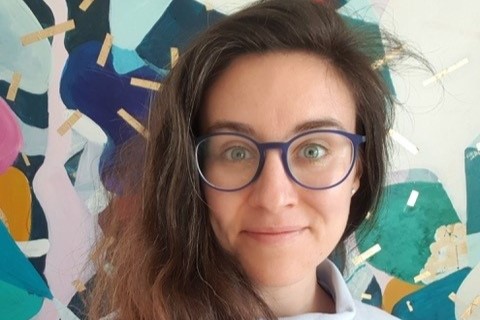
Creating the next generation of political engaged young people
A CIPR public affairs leaders interview with Rebecca Deegan, founder and director of I have a voice and the first winner of the PRCA’s trailblazer award
Rebecca Deegan admits she stumbled upon a career in public affairs. A generation of young public affairs professionals should be glad she did.
Rebecca is the founder and director of the advocacy group I have a voice. The organisation brings professionals from the political sphere to the classroom to equip young people with the tools and confidence to speak up on the issues that matter to them and their communities. It also works to help young people consider a range of rewarding careers in politics and policymaking.
And the success speaks for itself.
Some 20,000 young people have participated in its voter registration programmes, and 1,500 young people have now met an MP, Lord or local politician through its events programme. More than 200 students have been paired with a mentor, and nearly 30 have already secured a paid job opportunity.
Rebecca established I have a voice in 2020 after reflecting on her experience of leaving university and knowing nothing about politics.
“I stumbled across a profession that showed me there are many parliamentary mechanisms that enable citizens to push for change."
“But I felt unequipped to articulate my views, especially if someone challenged me,” explains Rebecca.
“In a time where political discourse was becoming increasingly divisive, I wanted to show young people how they can use democratic processes to raise their voices in a way that promotes open-mindedness and compassion and leads to effective action.”
Starting from small beginnings, I have a voice now has a broad range of programmes designed to help young people engage in politics.
It has developed informative and fun ways to get students clued up on politics, enhancing their political literacy, critical thinking, and empathy.
More than this, through its workshops, events and multi-session programmes, the organisation aims to develop young people’s confidence and enthusiasm for a lifetime of political participation.
Outside of I have a voice, Rebecca is currently the head of protection and health at the Association of British Insurers. Here she works on campaigns to support healthier working lives and to make sure people with complex health conditions can access insurance to protect their livelihoods and lives. Perhaps unsurprisingly, she’ll soon be switching roles to take on their DEI and sustainability brief while her colleague takes 9 months of leave to enjoy being a dad for the first time.
Before this, she was head of policy and public affairs at the Institute and Faculty of Actuaries, where she was responsible for ensuring the IFoA played a leading role in informing public policy debates.
Rebecca started her career at the Royal College of Obstetricians Gynaecologists (RCOG) where she got her first glimpse into a career in policy when the RCOG set up its Central Policy Unit.
“Through these roles, I have worked on local, national and global campaigns across major policy challenges such as climate change and our ageing population,” says Rebecca.
"This has been a fantastic experience and something I want others to be able to access."
I have a voice has grown beyond expectations.
For instance, its 'Youth Ambassador Programme' was not part of Rebecca's original plan. Instead, it grew organically as an increasing number of past students kept in touch because they wanted to keep getting their voices heard.
Now, ambassadors meet frequently and are in contact almost daily to discuss what is happening in politics, contact MPs, and design social media campaigns.
And Rebecca is not stopping now.
“I am passionate about equity, and I want to see a future where young people, from all backgrounds, engage with politics and go on to become active citizens,” argues Rebecca.
“But more than this, I want to see a future where our leaders are representative of the population, with proportionate representation from all groups.”
With such noble aims and success to date, who can argue with that?